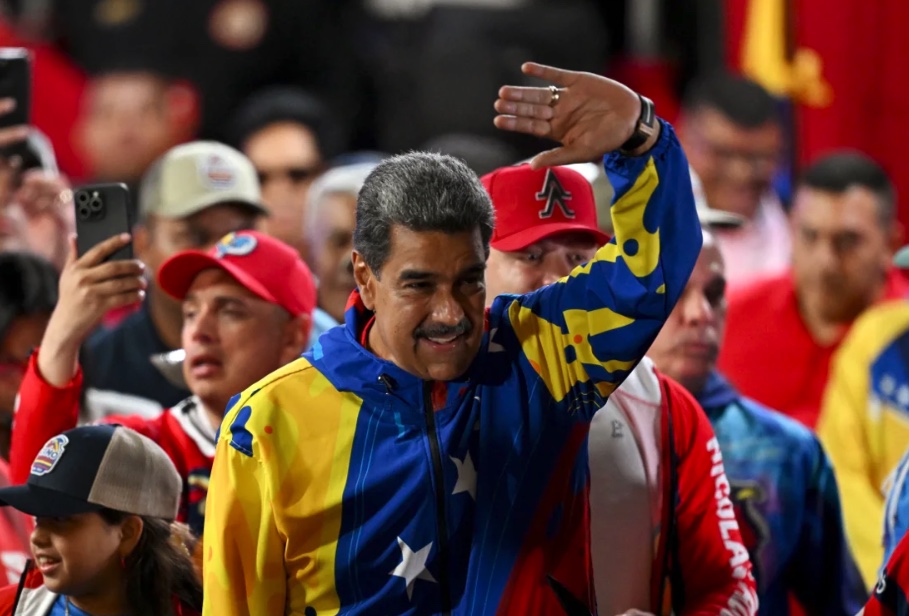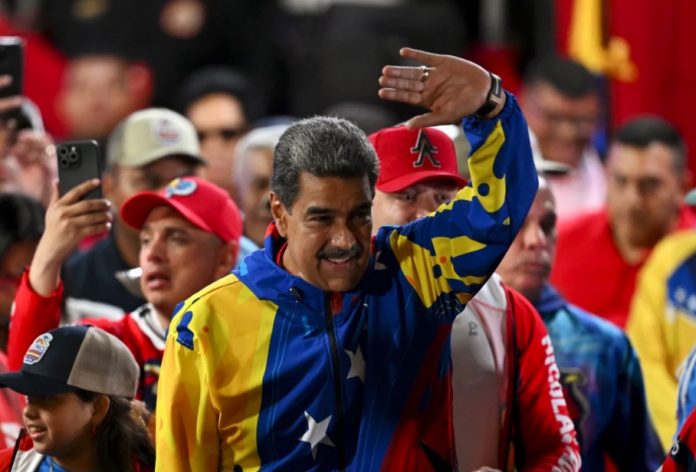การวิพากษ์วิจารณ์ Nicolás Maduro ผู้นำเผด็จการของเวเนซุเอลาเพิ่มมากขึ้น หลังจากการประท้วงร้ายแรงปะทุขึ้นทั่วประเทศภายหลังการเลือกตั้งประธานาธิบดีที่มีข้อโต้แย้ง ฝ่ายค้านของเวเนซุเอลาและผู้นำละตินอเมริกาหลายคนปฏิเสธที่จะยอมรับชัยชนะของมาดูโรในการลงคะแนนเสียงเมื่อวันที่ 28 กรกฎาคม ซึ่งประกาศโดยหน่วยงานการเลือกตั้งของประเทศ ซึ่งถูกครอบงำโดยพันธมิตรของประธานาธิบดี มีผู้เสียชีวิตอย่างน้อย 11 คนในการประท้วง ตามรายงานขององค์กรพัฒนาเอกชน Foro Penal และทางการเวเนซุเอลารายงานว่ามีการควบคุมตัวมากกว่า 1,000 ครั้ง อัยการสูงสุด ทาเร็ก วิลเลียม ซาบ กล่าวเมื่อวันพุธว่า เจ้าหน้าที่บังคับใช้กฎหมาย 77 นายได้รับบาดเจ็บจากการปะทะกับผู้ประท้วง และจ่ากองกำลังพิทักษ์ชาติ 1 นายถูกสังหารเมื่อวันอังคาร
CNN ยังไม่ได้ตรวจสอบยอดผู้เสียชีวิตและได้ติดต่อกับตำรวจเวเนซุเอลาแล้ว ขณะเดียวกัน บุคคลสำคัญของฝ่ายค้านถูกกล่าวหาว่าถูกลักพาตัว ตามที่ผู้สนับสนุนของเขาระบุ ในขณะที่กองทัพซึ่งสนับสนุนมาดูโรมายาวนาน ยืนยันอีกครั้งว่าจะสนับสนุนเขา การเลือกตั้งครั้งนี้ถูกมองว่าเป็นการสำรวจความคิดเห็นที่เป็นผลสืบเนื่องมากที่สุดในรอบหลายปี โดยที่ระบอบประชาธิปไตยที่กำลังดิ้นรนของเวเนซุเอลาและความหวังในการฟื้นตัวทางเศรษฐกิจเป็นเดิมพัน
แม้ว่ามาดูโรสัญญาว่าจะจัดการเลือกตั้งที่เสรีและยุติธรรม แต่กระบวนการดังกล่าวกลับเต็มไปด้วยข้อกล่าวหาเรื่องการประพฤติมิชอบ บุคคลฝ่ายค้านถูกจับกุม ผู้นำคนสำคัญของพวกเขาถูกห้ามลงสมัครรับเลือกตั้ง มีรายงานว่าพยานฝ่ายค้านถูกปฏิเสธไม่ให้เข้าร่วมการนับคะแนนส่วนกลาง และชาวเวเนซุเอลาในต่างประเทศส่วนใหญ่ไม่สามารถลงคะแนนเสียงได้ ผู้สนับสนุนฝ่ายค้านรุ่นเยาว์หลายคนให้คำมั่นว่าจะออกจากประเทศหากมาดูโรได้รับการเลือกตั้งอีกครั้ง โดยอ้างถึงการล่มสลายทางเศรษฐกิจอย่างรุนแรงและการปราบปรามอย่างรุนแรงภายใต้การปกครองของเขา อย่างไรก็ตาม ขบวนการฝ่ายค้านที่มีพลังซึ่งแสดงจำนวนผู้ลงคะแนนเสียงที่เข้มแข็งก่อนการลงคะแนนเสียง ถูกมองว่าเป็นความท้าทายที่ยากที่สุดสำหรับการจัดตั้งรัฐบาลในรอบ 25 ปี
Venezuela is gripped by protests and election uncertainty.

Criticism is mounting against Venezuela’s authoritarian leader Nicolás Maduro after deadly protests erupted nationwide following a disputed presidential election. Venezuela’s opposition and multiple Latin American leaders have refused to recognise Maduro’s victory in the July 28 vote, announced by the country’s electoral authority, which is dominated by the president’s allies. At least 11 people have been killed in the protests, according to the non-governmental organisation Foro Penal, and Venezuelan authorities report over 1,000 detentions. Attorney General Tarek William Saab said Wednesday that 77 law enforcement officers had been injured in clashes with protesters, and a National Guard sergeant was killed on Tuesday.
CNN has not yet verified the death toll and has reached out to Venezuelan police. Meanwhile, an important opposition figure was allegedly kidnapped, according to his supporters, while the army, which has long backed Maduro, reaffirmed its support for him. The election was seen as the most consequential poll in years, with Venezuela’s struggling democracy and hopes of economic recovery at stake.
Although Maduro promised free and fair elections, the process was tainted by allegations of misconduct. Opposition figures were arrested, their key leader was banned from running, opposition witnesses were reportedly denied access to the central vote count, and overseas Venezuelans were largely unable to vote. Many young opposition supporters vowed to leave the country if Maduro was re-elected, citing the severe economic collapse and violent repression under his rule. However, an energised opposition movement, which had shown strong polling figures before the vote, was seen as the toughest challenge to the ruling establishment in 25 years.
By CNN NEWS

















